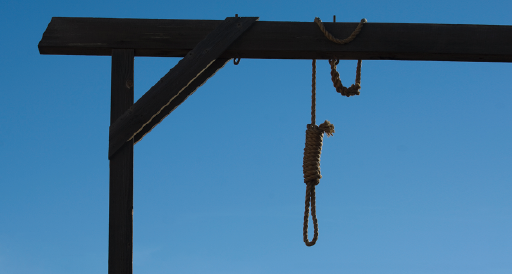By Christy Barritt
Christians and the Death Penalty
Christians are divided along generational lines as to whether or not they believe the death penalty is OK.
Recent data from the Barna Group showed that only 32 percent of self-identified Christian Millennials (individuals born between 1980 and 2000) think that the government should have the option to execute the worst criminals; 42 percent of self-identified Christian Boomers (those born between 1946 and 1964) agreed.
The divide grew larger when Barna analyzed the views of “practicing Christians.” They defined practicing Christians as those who said faith is very important in their lives and who attended church at least once in the month leading up to the data collection. Nearly half of practicing Christian Boomers supported the death penalty, compared with only 23 percent of practicing Christian Millennials.
Barna also found that only 5 percent of Americans believed that Jesus would support the death penalty.
Abstinence and Abortion
The Family Research Council recently released research indicating that women who abstained from sex until the age of 20 and then got pregnant were far less likely (only 6.2 percent) to ever have an abortion than those who were sexually active and got pregnant in their teens.
Their research showed that each year before age 20 that a girl waits to have intercourse for the first time, the more her chances of having an abortion decrease.
The research is based on data from the 2006–2010 National Survey of Family Growth, a U.S. government research initiative.
Churches Desire But Fail to Have Racial Diversity
Eighty-five percent of Protestant pastors in the U.S. believe that churches should strive to be racially diverse. Roughly that same number said that their personal congregations only reflect one predominant racial or ethnic group.
This is according to a recently released LifeWay Research poll. According to LifeWay Research president, Ed Stetzer, diverse churches remain rare because of human nature.
“Everybody wants diversity,” said Stetzer. “But many don’t want to be around people who are different.”
Ninety-one percent of pastors agreed that churches should reflect the racial diversity of their communities. Despite those opinions, only 51 percent of Americans said they would actually feel comfortable attending a church where multiple ethnicities attended.
Top Bible-Minded U.S. Cities
The American Bible Society and the Barna Group recently ranked 100 U.S. cities on where they fall in terms of embracing the Bible. The most Bible-minded city was Knoxville, Tennessee, and the least was Providence, Rhode Island, tied with New Bedord, Massachusetts.
Researchers got their results by measuring self-reported Bible reading, along with a belief in the text’s accuracy.
The top 10 most Bible-minded cities were all located in the South and Midwest. On the other hand, the least Bible-minded cities were mostly located on the East Coast, Northeast, and West.
In response to those results, Biblegateway.com decided to do research of their own. They ranked cities based on how many residents used their Bible software to look up Scriptures online. Bible Gateway research found that Atlanta, Georgia, reads the Bible the most online and the city falling in the 100th slot was Salt Lake City, Utah.
 Christy Barritt is an award-winning author, freelance writer, and speaker living in Chesapeake, Virginia. She and her husband Scott have two sons.
Christy Barritt is an award-winning author, freelance writer, and speaker living in Chesapeake, Virginia. She and her husband Scott have two sons.
www.christybarritt.com



Comments: no replies